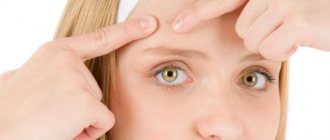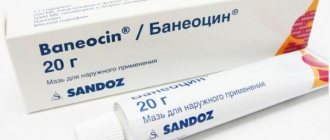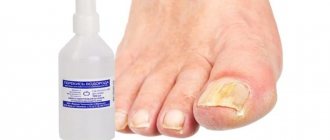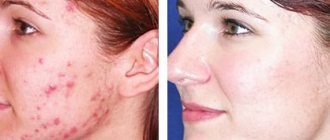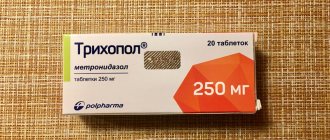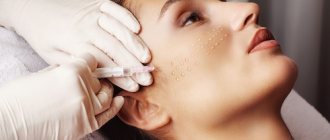Sulfur is an element that, when mentioned, makes you think of the occult, weapons and toxic chemicals. The history of this element is very rich, and the scope of its modern application is very extensive.
Previously, priests and shamans used sulfur vapors to perform ceremonies and rituals. Later, sulfur began to be added to flammable and explosive substances, that is, it was used for military purposes. Arsenic and other dangerous toxic compounds were also made from sulfur. Then one of the strongest inorganic acids, sulfuric acid, was made from it...
Using sulfur for militaristic, religious and other purposes, people began to subconsciously consider sulfur a very dangerous element from which they should stay away. But since the end of the 19th century, information began to appear that sulfur could be useful. The healing effect of sulfur springs, the discovery of sulfur in proteins and the identification of its valuable biological properties made it possible to understand that in small doses it is very important for us.
Signs of excess sulfur
Under natural conditions, when a person receives a mineral only through food, its excess cannot occur. But if the body is exposed to toxic sulfur compounds, this can cause an “overdose” and poisoning.
Symptoms of obvious excess sulfur are presented in the form of headache, severe weakness, convulsions, loss of consciousness, mental disorders, breathing problems, digestive disorders, etc.
Long-term consumption of foods containing sulfites may result in a less noticeable excess than exposure to industrial or household sulfur-containing substances. However, the health problems that arise from a “sulfite overdose” are also very unpleasant.
Sulfites are preservatives added to carbonated drinks, alcohol, vinegar and food coloring. With their excessive consumption, increased fatigue, nausea, inflammation of the skin and mucous membranes, general poor health, etc. are possible. In order to reduce their negative impact, it is worth abandoning the corresponding products and consuming natural sources of sulfur.
Useful properties of sulfur
Sulfur is used for medicinal and cosmetic purposes. The main task of sulfur is anti-allergenic and immunomodulatory effects, improving the functioning of the nervous system, cleansing the body of toxic elements and toxins.
Effects of sulfur on the body:
- protects against pathogens;
- maintains the required level of bile, which promotes better absorption of food;
- protects cells from the negative effects of radiation and other harmful external factors;
- stops the development of joint pathologies;
- prevents the development of anemia, ensures normal oxygen supply to tissues.
Sulfur interacts with vitamins B, H, lipoic acid, provides energy to brain cells, and promotes better absorption of glucose by muscles.
Sulfur maintains normal bile levels in the body
Indications for use
Sulfur is used in folk practice and medicine, for example, in the field of dermatology: with the help of sulfur, doctors “fight” the symptoms of scabies, eczema and folliculitis. The mineral is used for seborrhea, psoriasis or hair loss. Doctors also prescribe it when diagnosing various skin acne, sycosis and herpes zoster.
In the presence of high pigmentation of the epidermis or the presence of freckles, sulfur can be used as an exfoliant, and in case of constipation - as a laxative. Very often, sulfur helps with chronic hemorrhoids. It is also prescribed as an anthelmintic.
When diagnosing polyarthritis or sciatica, the mineral is used as an irritant, and in the presence of progressive paralysis, body temperature is increased using a sulfur suspension. Sulfur is also used for severe poisoning with mercury, metals and hydrocyanic acid. At home, sulfur is used for inflammatory processes of the gums.
Where to buy sulfur, which one is suitable, price?
You should buy sulfur only in pharmacies, including veterinary ones. The mineral is sold in various forms; to determine which drug a person needs, it is better to first consult with your doctor or pharmacist, who will tell you why and what is needed.
For example, purified sulfur or sulfur powder must be taken orally; sulfur ointment – used for scalp diseases; in the form of granules and tablets - for the treatment of acne and other inflammations. The average price of sulfur per 1 kg is 80 rubles.
Sulfur is an important macronutrient for the human body that is present throughout life. Without it, many life processes are impossible. Human health and appearance directly depend on sulfur. It’s not for nothing that people have always welcomed the consumption of animal products with a high sulfur content, because it’s not for nothing that they call it “the mineral of beauty.”
Article design: Oleg Lozinsky
Interaction with other substances
The “opponents” of sulfur are Selenium, Barium, and also heavy metals – molybdenum and lead, Mo.
For better absorption of sulfur, the following products will help:
- fish;
- honey;
- bran;
- pumpkin;
- oatmeal;
- peas;
- poultry and rabbit meat;
- Rye bread;
- buckwheat.
Medicines made from sulfur
In its pure form, sulfur is sold in pharmacies in the form of sulfur powder, but it is rarely recommended for severe skin diseases.
More often, sulfur ointment is used for dermatological problems. In addition to the main substance, it contains water and petroleum jelly, which form an emulsion. The ointment has an antimicrobial effect and restores damaged skin epidermis. In addition, it is recommended to combat acne and pimples. It also has an antifungal effect.
Sulfur soap is used for medicinal and cosmetic purposes. Soap with a sulfur content of 10% or more has a healing effect on the skin. And soap containing about 3% of the substance is used for prevention, cleansing the skin, fighting acne, etc.
Sulfur is included in medicinal plasters for calluses.
Used as part of laxatives to treat constipation. Natural mineral water often contains dissolved hydrogen sulfide.
Hydrogen sulfide water is used in various diets and health procedures; hydrogen sulfide baths are beneficial for the skin. They are also recommended for joint diseases - arthritis, rheumatism, etc. Hydrogen sulfide water has a healing effect on the musculoskeletal system and lowers blood pressure.
Finally, sulfur is included in many dietary supplements, along with other macro- and microelements.
What is sulfur and its role in the body
Sulfur, S (full name sulfur), is a macroelement assigned atomic number 16 in the periodic table.
This substance, known for its fetid odor in compounds and flammable properties, plays an important role in humans, being part of amino acids such as methonine, cystine, vitamins (for example, thiamine), hormones and enzymes (for example, insulin).
In the human body, the proportion of sulfur is 0.25% of the total mass.
Sulfur itself is not toxic, but compounds of the element with other chemical components, such as hydrogen sulfide, are poisonous.
It plays a key role in blood clotting. Its beneficial properties include protecting protoplasm from bacteria.
As part of the body's compounds, sulfur has benefits for the growth of hair, nails, skin, and also in protecting the body from aging.
Instructions for using sulfur
Before using sulfur-containing drugs, you should definitely consult a specialist. Only a doctor can select the optimal and safe dosage of the drug.
Sulfuric ointment
The product for external use has disinfectant, antiparasitic, antiseptic, and antimicrobial properties. The ointment is prescribed as part of complex therapy for the treatment of lichen, psoriasis, seborrhea, elimination of fungal infections, scabies, and demodicosis.
Sulfur ointment should be applied 1–3 times a day to dry, cleansed skin, the duration of treatment is 5–10 days.
Read also: Carbon peeling
Sulfur powder for internal use
Purified sulfur in powder form helps with enterobiasis, obesity, problems with hematopoiesis; the precipitated product can also be used, but it often provokes the development of flatulence.
How to take the medicine:
- For the treatment of advanced skin and fungal diseases, only purified medical sulfur is suitable; it should be taken 0.5–1 g in three divided doses with meals. Duration of therapy is 3–4 weeks.
- With enterobiasis. The dose for adults is 1 g, for children over 6 years old – 0.5 g, under 5 years – 0.25 g. The medicine should be taken three times a day for 5 days. After which you need to take a four-day break, give cleansing enemas with soda every evening. To completely get rid of parasites, 3–5 courses will be required.
- As an expectorant and general tonic – 0.25 g with the morning meal.
Medical sulfur should be taken with food
Sulfur is best absorbed when combined with iron and fluoride. Barium, lead, selenium, molybdenum reduce the percentage of microelement absorption.
Brewer's yeast with sulfur
At the pharmacy you can buy vitamin food supplements based on yeast and sulfur - Evisent, AMT, Bioterra, they contain all the necessary elements to improve the condition of hair, nails, rejuvenate facial skin, and maintain health.
Indications for use:
- manifestations of deficiency of B vitamins;
- recovery period after surgery and long-term illness;
- exhaustion of the body, passion for strict diets;
- pathologies of an endocrine nature - diabetes mellitus, thyroid disorders, obesity, hormonal imbalance;
- diseases of the digestive system, deterioration of blood clotting;
- nervous, physical, mental fatigue;
- for the prevention of cardiovascular diseases;
- dermatological diseases - acne, acne, furunculosis.
Brewer's yeast with sulfur improves skin, hair and nails
Tablets should be taken in 6-15 pieces. daily in 3 doses for 2-3 months, after which you need to take a break for six months.
Sulfur-based preparations are contraindicated during pregnancy and lactation; they are not used to treat children under three years of age.
At the initial stage of using sulfur-based preparations, rashes may appear, the skin begins to peel off severely, sometimes a laxative effect is observed - these are not side reactions, such a reaction is provoked by the strong antiseptic and anti-inflammatory properties of the trace element, all pathogenic microorganisms are drawn out through the skin.
Chewable sulfur
A natural alternative to chewing gum, it consists entirely of larch resinous compounds and has an antimicrobial effect. Chewing sulfur returns the natural color of tooth enamel, prevents the development of caries, periodontal disease, periodontitis, inflammatory processes in the oral cavity, helps cope with toothache, and is indispensable for stomatitis and sore throat. Experts recommend chewing sulfur twice a day for 30 minutes.
Read also: Best B vitamins
Larch chewing gum helps to quit smoking and avoid overeating.
Chewing sulfur helps get rid of oral diseases
Sulfur in folk medicine
Sulfur helps get rid of colic and prevent hernia in children - the powder on the tip of a knife should be added to milk or other food. You should first consult with a surgeon or pediatrician.
- Purified sulfur powder is taken 1 g three times a day for dermatological problems. To treat diathesis in children, you can prepare an ointment from an equal amount of sulfur and fatty sour cream, lubricate the affected areas 1-2 times a day after water procedures. The mixture can be used even for newborns after prior consultation with a pediatrician.
- The recipe for a universal mash to eliminate inflammatory processes on the face is to combine 50 ml of boric acid with ethyl alcohol, add 7 g of medical sulfur, 1 tablet of acetylsalicylic acid. Shake, pour into a dark glass container, store in the refrigerator, wipe the inflamed areas morning and evening.
Sour cream and sulfur are good for treating skin diseases in children
Products containing sulfur
Many organic products contain this useful element. Their daily use can bring benefits comparable to taking sulfur powder orally:
We recommend reading: The benefits and harms of leeks
- bulb onions;
- peas;
- a pineapple;
- zucchini;
- tomatoes;
- turnip;
- watermelon;
- nuts.
Recommended reading: Benefits of pineapple
Quail and chicken eggs contain the largest amount of the element.
There are also useful organic sulfur supplements on the market, such as chewable Siberian larch gum.
How to take sulfur and for what purpose?
Sulfur is mainly used externally as part of emulsions for acne, eczema and other skin diseases. However, taking it orally is also useful in some cases:
- metabolic disorders;
- sluggish functioning of the digestive tract;
- too oily skin, prone to excessive acne;
- inflammatory processes on the skin, psoriasis, eczema;
- decreased immunity;
- increased fatigue;
- weak, brittle nails and hair;
- diabetes, liver disease;
- allergies accompanied by skin rashes.
If you find yourself with a lack of sulfur, it can be replenished not only with pharmaceutical drugs. This trace element is found naturally in foods, especially of animal origin. Its quantity is high in meat and eggs. In plant products, it is found in cabbage, sprouted wheat, seeds, onions, and garlic. The presence of these products in the daily diet will help compensate for the deficiency of sulfur and other microelements.
The general approximate dosage for a person weighing about 70 kg is 0.25 g. The daily dose is divided by the number of meals and taken with food. For children, the dose is measured according to their weight and added to their food. Taking the drug in dry form, a child can inhale sulfur powder, which can lead to suffocation.
Food sulfur can be used either in its pure form or as part of tablets, dietary supplements, or in combination with nutritional yeast (in this form it is usually prescribed for acne). As part of the tablets, sulfur is easier to swallow and is better absorbed.
How to use sulfur
Sulfur-containing drugs are taken simultaneously with food.
You should only buy purified sulfur from the pharmacy.
Feed sulfur preparations for animals are not intended for human consumption.
The optimal course of treatment would be 1 month. If there is no expected benefit, you should stop taking it until you consult your doctor.
Important! Sulfur is used as prescribed by a doctor in the recommended dosage. Self-administration and prescription of the drug is not recommended
Sulfur powder for oral administration
Powder for internal use is prescribed for chronic diseases:
- polyarthritis;
- sciatica;
- haemorrhoids.
Sulfur for oral administration is purified and comes in tightly sealed jars. Taking purified sulfur is also prescribed for the treatment of enterobiasis.
Medical purified sulfur, or sulfuric anhydride, is beneficial in cases of:
- restoration of the body's defenses;
- for expectorant purposes: hydrogen sulfide is absorbed through the intestines and enters the lungs through the blood;
- for constipation, purified sublimated sulfur is prescribed;
- to enhance the body’s ability to neutralize weak poisons.
When taking sulfur, you can drink enterosorbents if you wish: they will reduce the harm of frequent gas formation that the drug can cause.
Sulfuric ointment
In addition to oral administration, medical purified sulfur is used externally in the form of ointments to treat:
- scabies;
- eczema;
- dermatitis;
- depriving;
- acne.
For dermatitis, medicinal sulfur ointment is recommended to be applied twice a day. The sulfur concentration in the preparation is 5%.
The sulfur concentration in acne ointment is 33%. It is applied to clean skin and dry skin. It is advisable to do the procedure in the evening and not rinse off immediately after applying the product.
During treatment of scabies, do not wash off the ointment from the skin. You should also not shower during therapy. Only after a 5-day course of treatment should you wash everything off thoroughly and put on clean clothes. Bed linen also needs to be changed.
Attention! Sulfur ointment smells unpleasant and leaves greasy marks
How is sulfur used in medicine?
The healing properties of this yellow powdery substance were discovered back in the times of Avicenna and Paracelsus. Insufficient intake of the element into the body is fraught with serious health problems, since this results in impaired absorption of amino acids, various vital components, as well as disruption of other biochemical processes in the human body. A significant lack of sulfur can lead to the development of neurasthenia.
Sulfur is used in medicine for skin diseases (eczema, acne, furunculosis, demodicosis, scabies, etc.), for intestinal problems, in particular constipation, and also in the fight against parasites. Treatment with this drug must be carried out in courses approximately two or three times a year.
What products contain
The presence of sulfur in the following food products has been established:
- dairy products;
- beans and other legumes;
- chicken and quail eggs;
- seafood;
- beef;
- asparagus;
- oatmeal;
- buckwheat;
- garlic;
- flour products;
- turnip;
- cabbage;
- gooseberry;
- onion.
It has been established that animal products contain greater amounts of the element than vegetables and fruits.
But if you want to eliminate sulfur deficiency in the body with the help of vegetables, it is recommended to take freshly squeezed juices on an empty stomach. Such measures will help not only replenish reserves of micro and macroelements, but also improve the general condition of the body, enhance the positive effect of all minerals, as well as their absorption processes.
Where is it used?
Pharmacy sulfur is used to treat various diseases; medicines based on this trace element can quickly eliminate the manifestations of articular and dermatological pathologies.
What does sulfur help with:
- allergies and dermatological diseases;
- bronchial asthma;
- arthritis, scoliosis, bursitis, osteoarthritis, myositis, sprains;
- convulsions;
- as an anti-inflammatory and analgesic;
- to strengthen the immune system, speedy recovery after long-term illnesses;
- to reduce the body's need for insulin in diabetes mellitus.
Read also: Balsamic vinegar - benefits and harm
In cosmetology, products with sulfur are used to prevent early aging, improve the appearance of the skin, give strength and shine to hair, and strengthen nail plates.
Sulfur is used in cosmetology
For external medicinal preparations, precipitated (purified, combustible) sulfur is used; it is part of sulfur ointment, which is prescribed for the treatment of scabies, seborrhea, and psoriasis. In combination with lanolin, petroleum jelly, and stearic acid, the microelement has an anthelmintic, exfoliating and anti-inflammatory effect - such drugs are prescribed to eliminate rosacea and scalp lesions.
Purified sulfur in the form of tablets is used in the treatment of enterobiasis, constipation, and as an external remedy for the treatment of dermatological pathologies. In the form of a yellow powder, the product is used in folk and traditional medicine; it can be used internally and in the preparation of medicines.
Homeopathic sulfur has a weak therapeutic effect; it is produced in the form of granules; the drug must be taken for a long time under the supervision of a specialist.
Sulfur is useful not only for people, but also for animals - the feed product is included in vitamins for animals. This microelement is also used to enrich fertilizers in agriculture, in the production of steel and rubber, explosives, and pyrotechnics.
